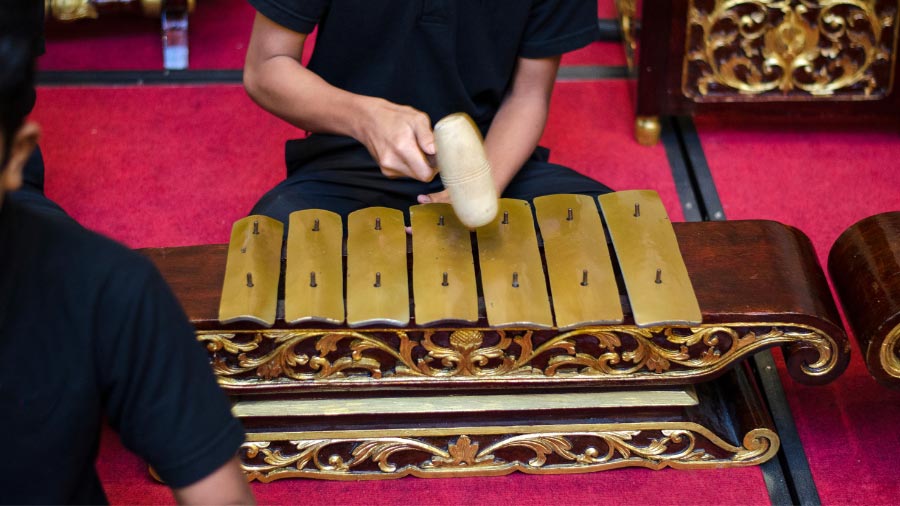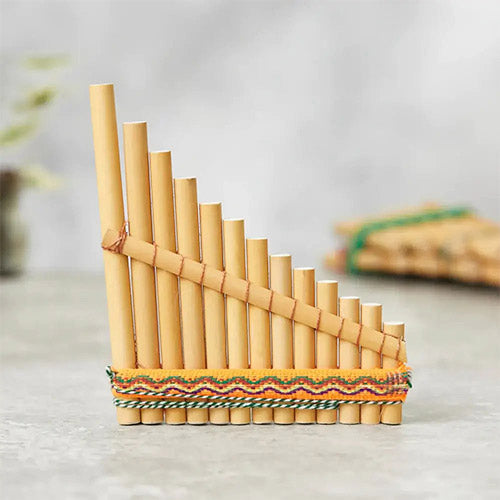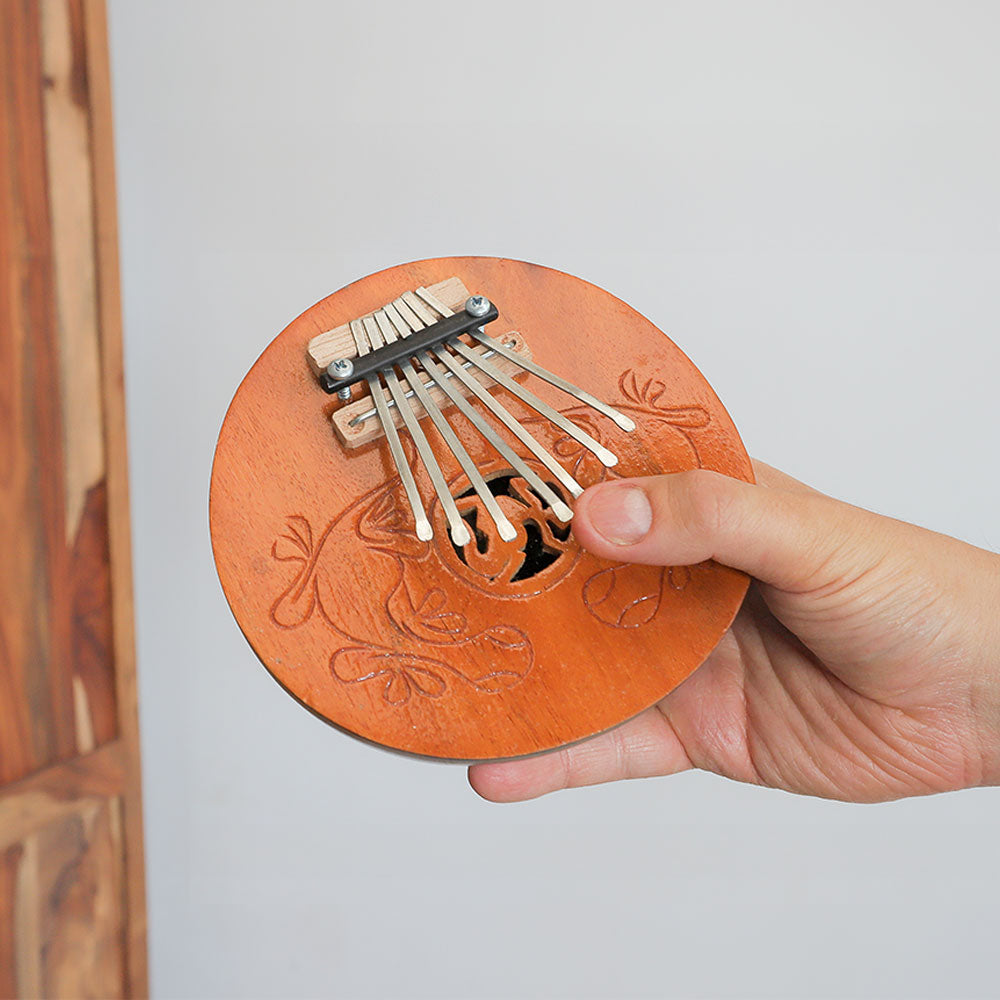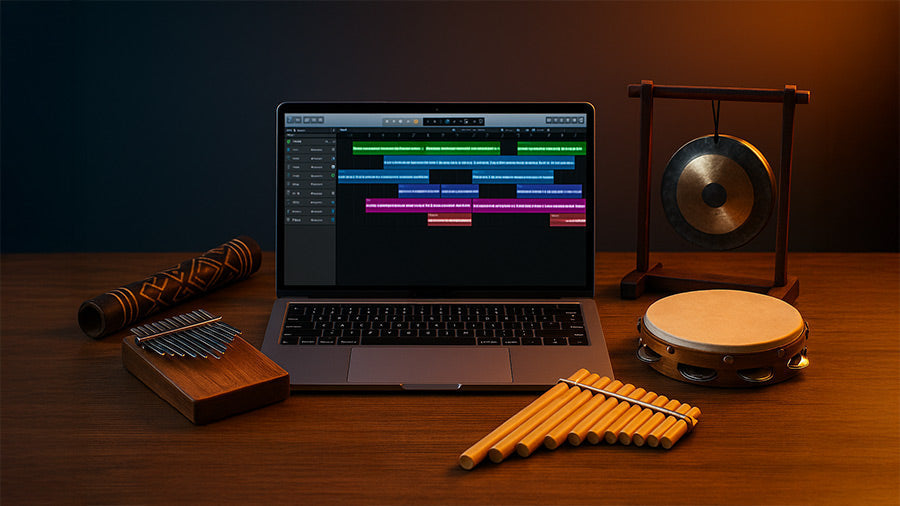A gamelan is a traditional Indonesian ensemble of instruments, primarily made up of metallophones, xylophones, drums, and gongs, often accompanied by bamboo flutes and string instruments. It is known for its layered, cyclical sound that is both meditative and dynamic. Gamelan is commonly used in religious ceremonies, puppet theater (wayang), traditional dance performances, and social gatherings. It is especially famous in Indonesia—particularly on the islands of Java and Bali—where it holds deep cultural and spiritual significance. Musicians, dancers, and temple communities often perform with gamelan to connect with ancestral traditions.
History of Gamelan
The gamelan has ancient roots that trace back to at least the 8th century in Indonesia, with early references found in temple reliefs from Central Java. While no single person is credited with inventing it, the development of gamelan is closely tied to Javanese and Balinese court culture. It evolved through centuries of Hindu-Buddhist, Islamic, and colonial influences, yet remained distinct in its tuning systems and spiritual role. Gamelan was traditionally considered sacred, and instruments were often believed to possess spiritual power, requiring special rituals before being played. Its history reflects the rich, syncretic culture of Indonesia.
Types of Gamelan
There are several types of gamelan, with the most prominent being Gamelan Jawa (Javanese gamelan), Gamelan Bali (Balinese gamelan), and Gamelan Sunda (from West Java). Each type has unique characteristics—Javanese gamelan tends to be slower and more meditative, Balinese gamelan is fast, bright, and dynamic with explosive changes in tempo, and Sundanese gamelan often features softer, more lyrical tones. Instruments vary between regions in design and tuning systems such as slendro (pentatonic) and pelog (heptatonic). Despite their differences, all gamelan ensembles emphasize communal playing, interlocking rhythms, and a shared musical pulse.
Gangsa Gamelan

★★★★★ - “They loved it. Gave this as a gift to someone who has always wanted to play the Gamelan”. - Verified Buyer
The Gangsa Gamelan is a vibrant, handmade Balinese instrument known for its crisp, clear tone and eye-catching painted design. Traditionally played in orchestras alongside other gamelan instruments, it’s easy to play solo and makes a striking addition to any musical collection. Crafted from wood and metal with assorted bold colors and abstract or floral patterns, it comes with its own hammer and is both eco-friendly and fun. Whether you're a music lover or looking for a unique gift, this gamelan offers cultural richness and melodic charm in one compact piece.
Purchase the Gangsa Gamelan Here.
Gamelan Metallophone

The Budget Gamelan Medium 4 Key is a traditionally tuned Indonesian metallophone, ideal for beginners and young players exploring Balinese music. Made from eco-friendly wood and recycled steel, it offers a clear, balanced tone—pitched between the small and large versions—for versatile play in group or solo settings. Lightweight and durable, it features a circular spotted design in red and wood tones, comes with a beater, and is both handmade and fair trade. A fun, affordable introduction to gamelan culture, it’s a standout gift for any aspiring percussionist.
Purchase the Gamelan Metallophone Here.
Tenang Gamelan

The Tenang Gamelan is a beautifully handcrafted Indonesian percussion instrument tuned to Western C major, offering a clear, soothing tone ideal for both music-making and display. Adorned with hand-painted floral motifs in rich golden brown and red, it blends musical function with ornamental elegance. Lightweight and eco-friendly, it features a freestanding wooden frame, comes with a beater, and is perfect for mindful playing or as a unique gift.
Purchase the Tenang Gamelan Here.
Tips for Choosing the Right Gamelan
When choosing the right Gamelan, consider the size, tuning system, and purpose—whether it's for educational use, personal enjoyment, or ensemble performance. Beginners may prefer smaller metallophones or four-key models for ease of play, while collectors or experienced musicians might opt for full sets or larger keyed versions. Pay attention to the material and craftsmanship, especially if it's handmade or fair trade. Gamelan is suitable for music enthusiasts, educators, cultural centers, and anyone drawn to traditional Indonesian music and its calming, meditative sound.
The Pros and Cons of Buying a Second-Hand Gamelan
Buying a second-hand Gamelan can be a budget-friendly way to access these traditional instruments, and older pieces often carry unique character and history. However, there’s a risk of wear, damage, or poor tuning—especially if not well maintained. New Gamelans are more likely to be in perfect playing condition, and handmade ones crafted by artisans often ensure better quality and ethical production. If you’re new to Gamelan or want it to last, a new handmade piece is likely the best investment. However, if you're collecting or want an authentic feel, a second-hand one could hold charm.
Unique Gamelan Accessories
Gamelan accessories can elevate the playing experience and prolong the life of your instrument. A proper mallet or beater designed specifically for your type of Gamelan is essential for sound and technique. For wooden Gamelans, natural oils like linseed or teak oil can help preserve the wood and maintain its appearance. Soft cloth covers or padded bags provide protection during storage or travel. Stands, cushions for seating, and cleaning cloths also add convenience, while tuning tools and notation sheets are useful for serious learners or performers.
Gamelan in Popular Music
Gamelan music is deeply rooted in Indonesian culture, particularly in traditional genres like Javanese and Balinese court music, and is often used in ceremonies, dances, and shadow puppet performances. Its mesmerizing, layered sound has also influenced Western classical and contemporary composers such as Claude Debussy and Philip Glass. Gamelan instruments have appeared in experimental music and film scores for their atmospheric tones. Their rich textures and meditative qualities make them a favorite in world music and fusion genres, captivating audiences globally.







